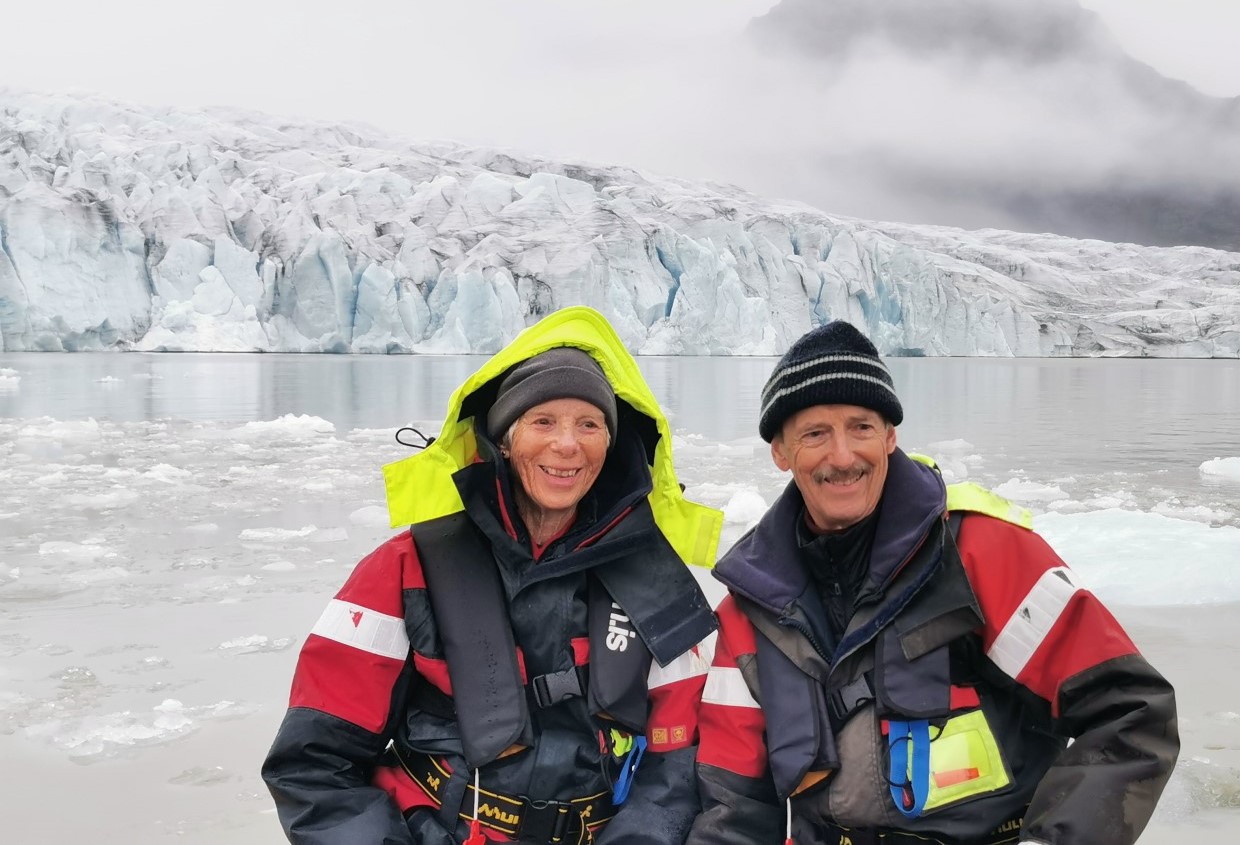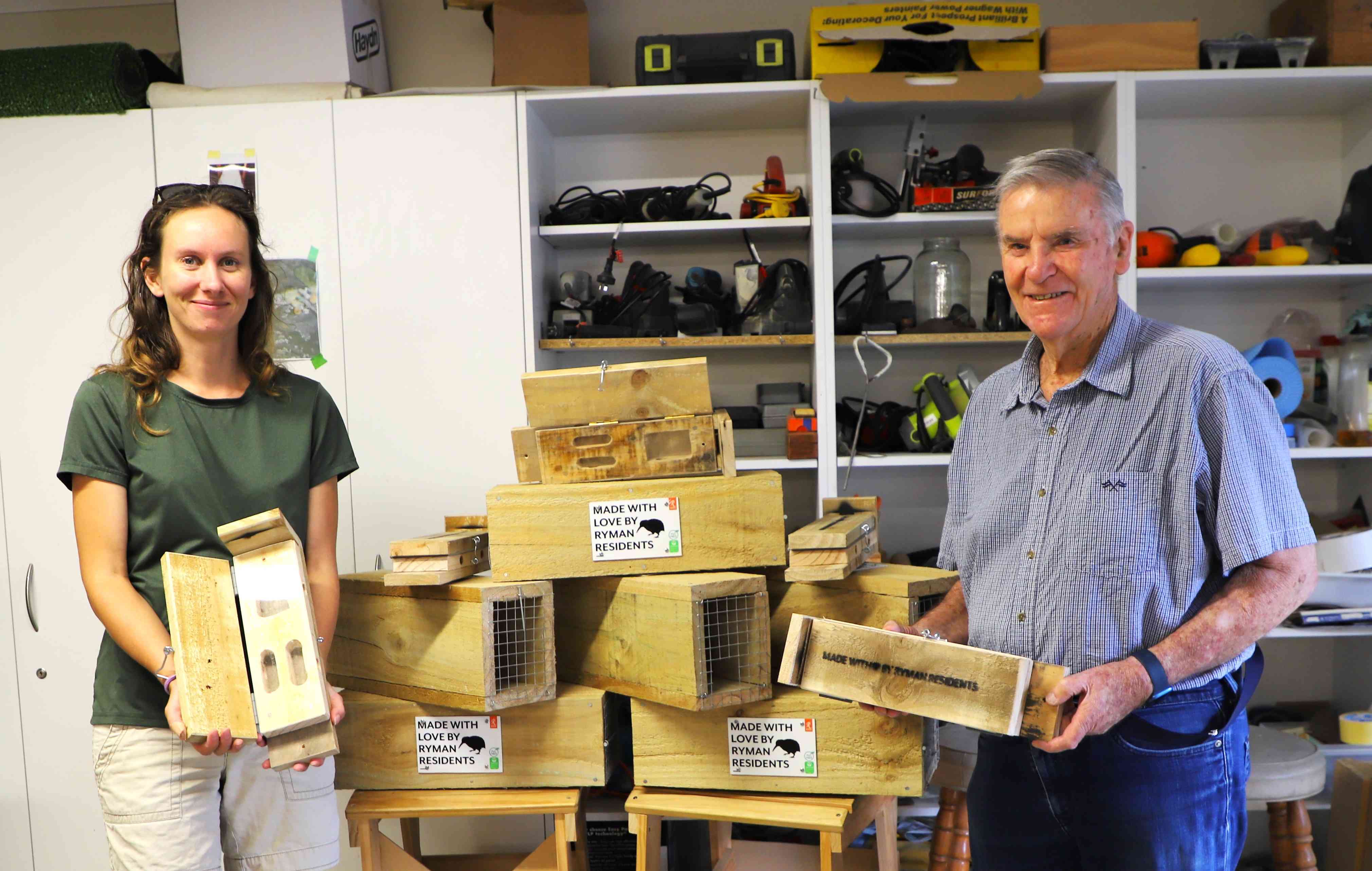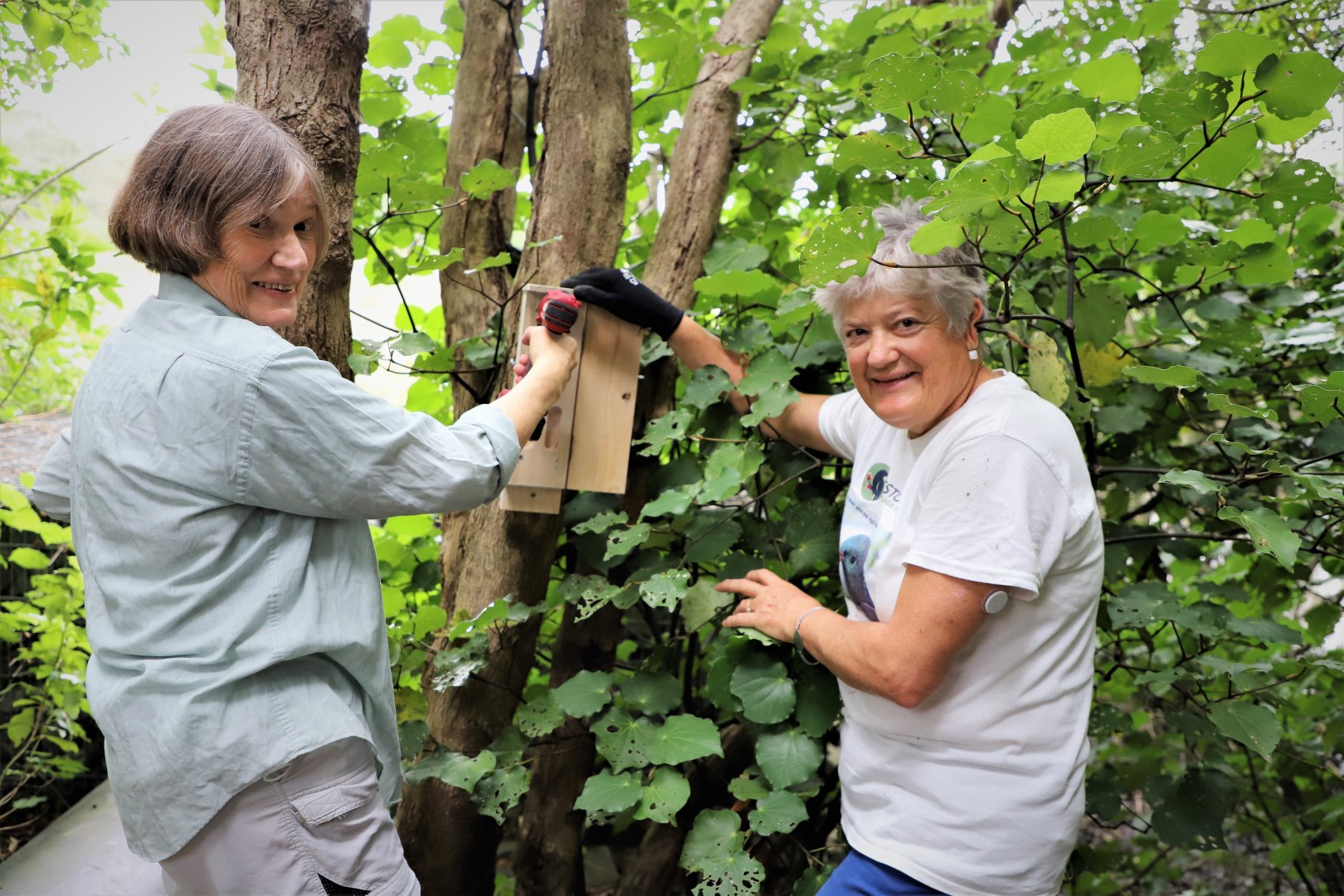Bert Sutcliffe residents help kids welcome more wētā
Bert Sutcliffe residents help kids welcome more wētā
%20(Large).jpg?width=1668&height=1080&name=IMG_8535%20(2)%20(Large).jpg)
Bert Sutcliffe Retirement Village residents Norris Aitken and Dick Fisher have put their woodworking skills to great use by whipping up 30 wētā hotels for local conservation use.
The pair constructed the hotels using untreated wood and tools in the village workshop over several months, with the design specially crafted to welcome wētā and obstruct predators.
The mission follows on from a similar conservation effort on the Devonport peninsula assisted by residents from Ryman’s William Sanders village.
In Birkenhead, Norris and Dick connected with environmental group Pest Free Kapātiki (PFK) to find out where the best locations for the wētā hotels would be.
PFK Kauri Dieback Campaign Coordinator Maisie Hamilton Murray said the hotels would be perfect to use during the Birkdale Beach Haven Community Project’s school holiday programme at Shepherds Park and these holidays Norris and Dick got the chance to present four wētā hotels in person.
The children from Kids @ 134 Holiday Programme were very excited to learn all about ‘the dinosaur of the insect world’ and had decorated special signs to place next to the hotels which Dick helped Maisie to hammer into place.
%20(Large).jpg?width=1406&height=1080&name=IMG_8542%20(1)%20(Large).jpg)
The children made signage to place next to the wētā hotels made by Norris and Dick, residents at Ryman's Bert Sutcliffe Retirement Village in Birkenhead (above) and sneaking a peek in the newly-attached hotel (below).
%20(Large).jpg?width=1620&height=1080&name=IMG_8543%20(1)%20(Large).jpg)
Maisie was incredibly grateful for the thoughtful donation and said the wētā hotels were a real hit with the children.
“I think the anticipation of when the wētā will move in, what they will look like, and how they might behave really captured the kids,” she said.
“Many of them were talking about when they will be able to come back next and check on them, and show their parents something they were a part of.”
Maisie said there had been instances of kauri dieback in Kaipātiki, including in Kauri Park over which Bert Sutcliffe village looks, so the location of each wētā hotel was made with much care and thought.
“It is paramount that we are not encouraging or enticing people to leave tracks to look at the hotels. That’s why Shepherds Park, with its many kanuka close to the track, is a great spot.”
Norris and Dick told the children the hotels were enjoyable to make, although cutting out the access holes were particularly challenging as they were done by hand.
They were both impressed with the children’s knowledge of wētā and thought the positioning of the hotels was quite innovative.
“I thought their knowledge was very sound and they retained what they had learned,” said Norris.
“Trying to realise the magnitude of looking after our insects is so huge that every little bit helps and talking with children, they will be aware and care for the environment more.
“It was the look of expectation on those little faces of having something to look forward to in the future,” he said.
%20(Large).jpg?width=1620&height=1080&name=IMG_7712%20(1)%20(Large).jpg)
Norris Aitken and Dick Fisher show off their batch of wētā hotels in the village workshop (above) and with Pest Free Kapātiki's Maisie Hamilton Murray at Shepherds Park in Beach Haven (below).
%20(Large).jpg?width=1668&height=1080&name=IMG_8535%20(2)%20(Large).jpg)
Dick agreed: “The children seemed very interested and inquisitive about the hotels and enjoyed attaching them to the designated trees,” he said, adding: “Hopefully the hotels will have many guests in the future.”
Maisie said wētā were an essential part of native ecosystems, for instance as a food source for birds like ruru, and PFK was currently aiming to have thriving native ecosystems in urban reserves.
“Habitat loss and predation by invasive mammals are significant risks to wētā, so hopefully we see many wētā move into these new digs, and an increase in their numbers as our predator control efforts become ever more successful.”
Norris and Dick are now working with PFK to source materials to finish off a large number of partially-made rat traps that they have stored in the village workshop.
by Maryvonne Gray | Oct 6, 2023
Subscribe to our blog newsletter
You May Also Like
These Related Stories

The Whitlocks complete Walking for Wellness in Iceland!

Welcome wētā, rats rack off!

